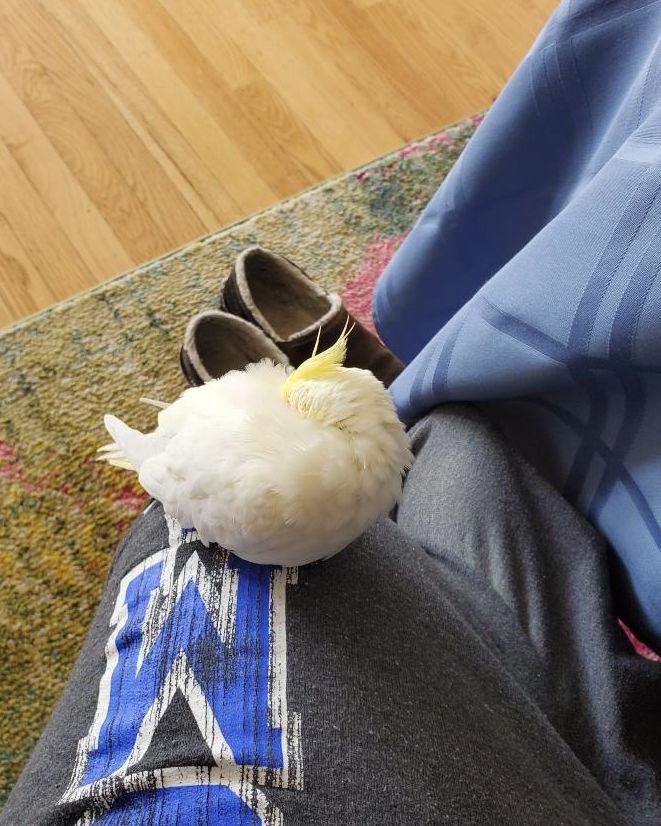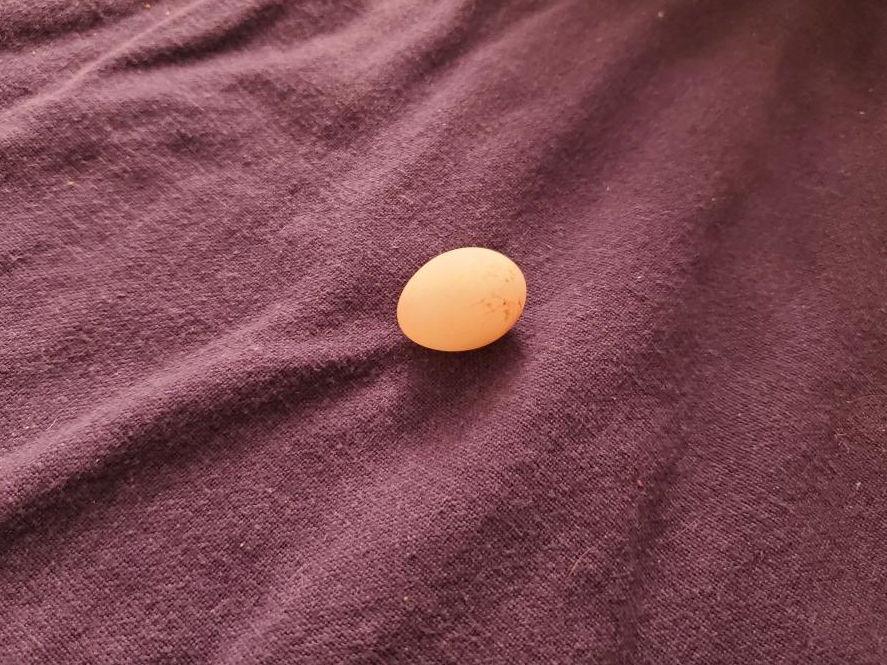With everyone in quarantine, life has been pretty stagnant and most people are just doing the same thing day after day. Well, not my family! Okay, I should not say my family, I should say our pet bird, Miki, because she laid an egg for the first time. Being a cockatiel she does not need a mate to lay an egg, and she can lay infertile eggs on her own. It is a healthy, natural part of a female bird’s development, but it is very draining for the body. Not to mention how cranky having an egg made her.
Miki started laying her egg on Monday around 4 p.m. We called the vet, and they told us to wait for her to pass it, and if she did not pass it within 24 hours, we should bring her in for emergency surgery. She was also given an appointment on Tuesday for, what I like to call, birdie birth control. They wanted to give her an implant to stop laying eggs, because if she lays too many eggs, she could end up with a calcium deficiency.
Well, Tuesday came around and Miki still did not lay her egg. I got worried because I know an egg that is bound can become very serious very quickly. My mom called the vet, and they told her to keep an eye on her and bring her in for her appointment. My mom brought her to the VCA Wakefield Animal Hospital to see Dr. Morris. We found out that the egg was stuck, and that she was going to need surgery to get it out or she could die. The only issue is the surgery was about $1,800, because she is a bird and it is a tricky surgery.
Of course my Mom is going to try to pay for it so Miki can feel better, but the problem was it is a lot of money! That is when Dr. Morris, the best vet we have ever met, came in and said there is a way to make the procedure cheaper. He is new to the practice and had only done the surgery one other time so it could be considered a learning experience for him. This brought down the price to about $500 for her to be treated. When I heard the news, I was flabbergasted! There was no way that he had just done that for us, but he did. Not only was he going to do the surgery on her, the other vet that he worked with was coming in on her day off to observe him while he was doing it. After that, we knew that Miki was in great hands, and we headed home for the night so she could have her operation.
A few hours go by, and we got another call from Dr. Morris telling us to come pick Miki up, because there had been a change of plans. The egg that Miki was laying was stuck; not because it was too large or anything like that, but because the egg had no shell. Not only is this really rare for birds, it is also a much more complicated situation. There was a chance that she could pass the egg, and there was also a chance that she would need to come back in if she did not pass it to get her reproductive organs removed. Not only is this an expensive procedure, it is also a very risky one as well. They said that Miki would have a 50/50 chance of survival if they had to do the surgery. We decided to wait and call back in a few days if she did not pass the egg. If there was a chance that she did not have to go through surgery, we wanted to make that happen.
After my mom brought her home and she was all nice and comfortable, she laid the egg! It was one of the most relieving things to get a picture of the egg from my mom. It meant she did not have to get the surgery, and she was feeling a lot better. I do need to take a moment and thank the VCA Wakefield Animal Hospital for all they did for Miki and a special thanks to Dr. Morris for his help! This would have been a much more stressful and scary time if he had not been there!
Photo by Rose Murray / Mass Media Staff






















































